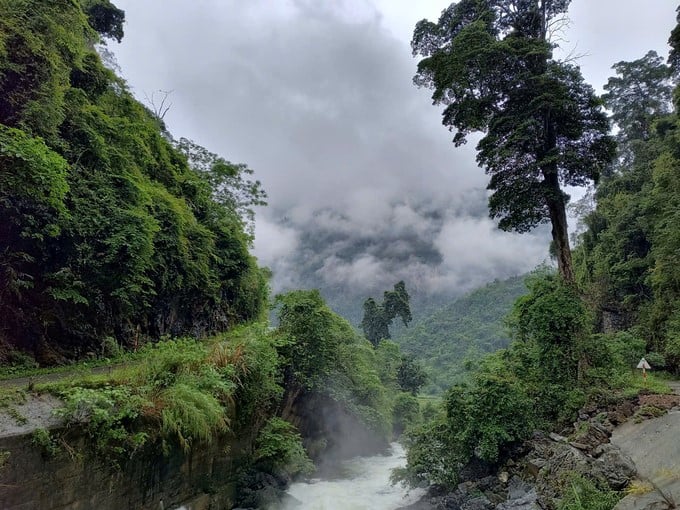November 27, 2025 | 16:23 GMT +7
November 27, 2025 | 16:23 GMT +7
Hotline: 0913.378.918
November 27, 2025 | 16:23 GMT +7
Hotline: 0913.378.918

From 2029, the carbon market in Vietnam will officially operate and research the ability to connect with the international market. Photo: Kim Long.
On October 7, at the meeting to give opinions on completing the draft Project on Establishing and Developing the Carbon Market in Vietnam, Deputy Prime Minister Tran Hong Ha assigned the Ministry of Finance to coordinate with the Ministry of Natural Resources and Environment and other Ministries and branches to thoroughly review legal documents related to this market.
According to the draft, the carbon market in Vietnam will help achieve the goal of reducing greenhouse gas emissions at low costs while promoting green transformation, developing technology, and improving competitiveness. The pilot phase of 2025-2028 will only take place domestically, not connecting to the international market. From 2029, the market will officially operate and research the ability to connect with the international market.
The draft sets out five groups of tasks, including goods, participating entities, trading floor, operating organization, and raising awareness and capacity. Representatives of Ministries and branches discussed the assignment of management responsibilities between the Ministry of Natural Resources and Environment and the Ministry of Finance, especially related to carbon credit exchange activities.
The Deputy Prime Minister emphasized that the carbon market is a potential opportunity to attract investment and develop technology, but international regulations on quota allocation and mechanisms are still not synchronized. Therefore, Vietnam needs to implement the pilot roadmap cautiously, both deploying and perfecting, to keep up with the world's trends.
Translated by Thu Huyen
/2025/11/26/4909-2-154329_878.jpg)
(VAN) Pearl grouper farming in HDPE cages not only delivers economic efficiency but also contributes to protecting the environment, creating jobs, and promoting marine-based experiential tourism.

(VAN) The model of making a living under the forest canopy through the agroforestry system in Van Son commune, Bac Ninh province, is expected to generate an annual income of approximately VND 30 million/ha.

(VAN) Many enterprises in Can Tho are harnessing natural energy and reducing greenhouse gas emissions in their production processes, thereby contributing to the promotion of a sustainable green transition.
/2025/11/24/3536-2-112800_176.jpg)
(VAN) Dong Nai now has tens of thousands of hectares of forests certified for sustainable management, and this area will continue to be expanded in the coming period.

(VAN) Vinh Ha hamlet (Dai Xuyen commune, Hanoi) is shifting away from small-scale farming as households adopt bioscurity into their breeder chicken models.

(VAN) Heavy rains make aquatic species more vulnerable to disease. Proactive water management and high-tech systems help farmers prevent outbreaks and protect yields.

(VAN) Greenhouses are shifting production mindsets in Binh Lu commune, enabling farmers to ‘weather the sun and rain’ and secure stable vegetable harvests throughout the year.